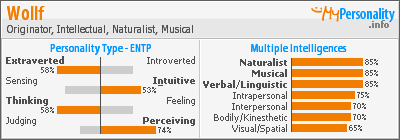PTSD....and brain damage to our returning Troops really is a problem, and not to be lightly dismissed.
From MSN: Rand Corporation made a study of returning Veterans......
The Rand study, completed in January, put the percentage of PTSD and depression at 18.5 percent, calculating that approximately 300,000 current and former service members were suffering from those problems at the time of its survey, which was completed in January.
The figure is based on Pentagon data showing over 1.6 million military personnel have deployed to the conflicts since the war in Afghanistan began in late 2001.
RAND researchers also found:
About 19 percent — or some 320,000 services members — reported that they experienced a possible traumatic brain injury while deployed. In wars where blasts from roadside bombs are prevalent, the injuries can range from mild concussions to severe head wounds.
About 7 percent reported both a probable brain injury and current PTSD or major depression.
Only 43 percent reported ever being evaluated by a physician for their head injuries.
Only 53 percent of service members with PTSD or depression sought help over the past year.
They gave various reasons for not getting help, including that they worried about the side effects of medication; believe family and friends could help them with the problem; or that they feared seeking care might damage their careers.
Rates of PTSD and major depression were highest among women and reservists.
And then, the Symptoms.....
Soldiers' symptoms
Symptoms of post-traumatic stress disorder (PTSD), a condition that some people have after experiencing a disturbing event, can include:
— Reliving the event over and over. Flashbacks can be triggered by loud noises, seeing a traffic accident, even watching a news report.
— Avoiding situations that remind you of the event.
— Feeling numb and loss of interest in relationships and activities.
— Feeling on edge, getting angry easily, having a hard time sleeping and overreacting when startled.
Traumatic brain injury can cause problems long after a blow or shock to the head actually happens. Symptoms can include:
— Constant headaches
— Confusion
— Light headedness or dizziness
— Changes in mood or behavior
— Trouble remembering or concentrating
— Repeated nausea or vomiting
— Problems with seeing or hearing
Nasty stuff, People. TBJ is no joke. The Brain is the organ that makes us Human. TBI happens, and has lasting effects....
In fact I know a Fellah that has almost all........oh, nevermind.
They can make it.
They just need a little direction, support and most definitely *Hugs*
Support the Trops. Not just "In the Sandbox".
When they get Home too........
Wait'll you see my latest cat scan....it's cool.
Wollf
Thursday, April 17, 2008
Subscribe to:
Post Comments (Atom)


















2 comments:
The facts and figures regarding traumatic brain injury are indeed scary. On the civilian side, there are about 5.4 million TBI survivors in the US and 1.5 million new injuries per year!
It's frustrating because a lot of times people can't see what is wrong with the TBI survivor. A lot of times they're on their own with medical bills as well. Fortunately, we're finally starting to look into the issue more (in light of our returning veterans).
If you're interested in the latest TBI and spinal cord injury research and info, check out my blog.
Excellent post, Wollf. Some of your readers may be interested in checking out another site, as well.
www.secondchancetolive.wordpress.com - this gentleman suffered brain injury as a child and has excelled in his own personal development and as a resource for others.
Post a Comment